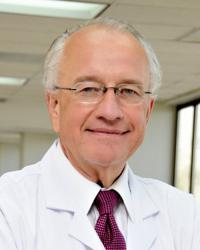Research Lab Results
-
Jodi Segal Lab
Research in the Jodi Segal Lab focuses on developing methodologies to use observational data to understand the use of new drugs, particularly drugs for treating diabetes, blood disorders and osteoporosis. We apply advanced methods for evidence-based review and meta-analysis, and—in collaboration with Johns Hopkins biostatisticians—we have developed new methodologies for observational research (using propensity scores to adjust for covariates that change over time) and methods to account for competing risks and heterogeneity of treatment effects in analyses.
-
Jody Tversky Lab
The Jody Tversky Lab studies dendritic cells in allergy and immunotherapy; cluster immunotherapy clinical observations and immune tolerance; and clinical diagnostic sensitivity of 10 allergy skin prick devices.
-
Joel Blankson Lab
Work in the Joel Blankson Lab explores the mechanism of control of HIV-1 replication in a cohort of patients known as elite controllers or elite suppressors. These patients are HIV-1 seropositive but maintain levels of viremia that are below the limit of detection of standard clinical assays. We feel that elite suppressors represent a potential model for a therapeutic HIV vaccine. Our central hypothesis is that many of these patients are infected with fully replication-competent HIV-1 isolates that are held in check by the immune system. To test this hypothesis, we are studying many different host and viral factors in these patients.
-
Joel Pomerantz Laboratory
The Pomerantz Laboratory studies the molecular machinery used by cells to interpret extracellular signals and transduce them to the nucleus to affect changes in gene expression. The accurate response to extracellular signals results in a cell's decision to proliferate, differentiate or die, and it's critical for normal development and physiology. The dysregulation of this machinery underlies the unwarranted expansion or destruction of cell numbers that occurs in human diseases like cancer, autoimmunity, hyperinflammatory states and neurodegenerative disease. Current studies in the lab focus on signaling pathways that are important in innate immunity, adaptive immunity and cancer, with particular focus on pathways that regulate the activity of the pleiotropic transcription factor NF-kB.
-
John Aucott Lab
Research in the John Aucott Lab focuses on the development of accurate diagnostic tests for all stages of Lyme disease. We work closely with Dr. Mark Soloski on the Study of Lyme disease Immunology and Clinical Events (SLICE), a longitudinal, matched-control study of patients diagnosed with early untreated Lyme disease. The objective is to use the collected biological samples to help identify novel Lyme disease biomarkers that can inform diagnoses, outcomes and the knowledge about disease pathophysiology.
-
John Carey Lab
The John Carey Lab studies inner ear balance function in Menière’s disease and steroid treatment of sudden hearing loss. Other research of interest includes the normal vestibular reflexes and how they change with age, the ototoxic effects of gentamicin, the use of intratympanic steroids for Menière’s disease, the diagnostic utility of vestibular evoked myogenic potential testing, and the mechanisms of vestibular migraine.
-
John Matthew Austin Lab
Research in the John Matthew Austin Lab explores health care performance measures, with a goal of improving patient care by enabling healthcare providers to view data about their performance, track patient outcomes and comply with best care practices. Our lab is currently working to develop performance measures for the ICU part, and we are part of The Leapfrog Group, an annual survey of U.S. hospitals that compares hospital performance on national measures of safety, quality and efficiency. Our research also explores the use of scientifically sound decision-support tools for guiding improvements in healthcare delivery systems.
-
John Sampson Lab
Researchers in the John Sampson Lab investigate relevant, appropriate, affordable and sustainable ways to improve anesthesia and perioperative care in low-resource settings. The team’s research interests include the Universal Anesthesia Machine; interpersonal relationships between anesthesia providers and their patients; how the quality of those relationships impacts professionalism, autonomy, anxiety, patient cooperation and patient satisfaction; how disease influences cerebrovascular reactivity as measured by MRI; and how education and communication can improve medical care in Africa and other austere environments. The team is currently working with clinicians in Ghana, Ethiopia and Kenya. -
John Schroeder Lab
The John Schroeder Lab focuses on understanding the role human basophils and mast cells play in allergic reactions, as it relates not only to their secretion of potent inflammatory mediators (e.g., histamine and leukotriene C4) but also to their production of pro-inflammatory cytokines. We have long utilized human cells rather than cell lines in order to address the parameters, signal transduction and pharmacological aspects underlying clinically relevant basophil and mast cell responses. As a result, the lab has established protocols for rapidly isolating large numbers of basophils at high purity from human blood and for growing culture-derived mast cells/basophils from human progenitor cells. A variety of assays and techniques are also in place for concurrently detecting cytokines and mediators following a wide range of stimuli. These have facilitated the in vitro testing of numerous anti-allergic drugs for inhibitory activity on basophil and mast cell activation. The lab also studies counter-regulation between the IgE and innate immune receptors on human immature dendritic cell subtypes.
-
John Ulatowski Lab
Research in the John Ulatowski Lab explores the regulatory mechanisms of oxygen delivery to the brain and cerebral blood flow. Our work includes developing and applying new techniques and therapies for stroke as well as non-invasive techniques for monitoring brain function, fluid management and sedation in brain injury patients. We also examine the use of novel oxygen carriers in blood. We’ve recently begun exploring new methods for perioperative and periprocedural care that would help to optimize patient safety in the future.


